The systematic measurement errors of the Analyzer are divided into the following categories according to their source:
•directivity
•source match
•load match
•reflection tracking
•transmission tracking
•isolation
The measurement results before error correction are called uncorrected.
The residual values of the systematic measurement errors after error correction are called effective.
Directivity Error
A directivity error (Ed) is caused by incomplete separation of the incident signal from the reflected signal by the directional coupler in the source port 1. In this case, part of the incident signal energy enters the receiver of the reflected signal. Directivity errors do not depend on the characteristics of the DUT, and usually have a greater effect on reflection measurements.
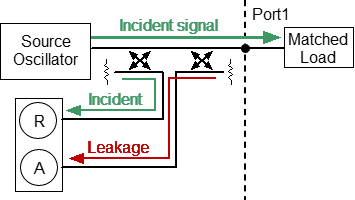
Directivity Error
Source Match Error
A source match error (Es) is caused by a mismatch between the source port 1 and the input of the DUT. In this case, part of the signal reflected by the DUT reflects at the source port 1 and re-enters the input of the DUT. The error affects both reflection measurement and transmission measurement. Source match errors depend on the difference between the input impedance of the DUT and test port 1 impedance when it functions as a signal source.
Source match errors heavily affect measurements of a DUT with poor input matching.
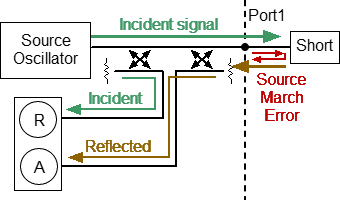
Source Match Error
Load Match Error
A load match error (El) is caused by a mismatch between the receiver port 2 and the output of the DUT. In this case, part of the signal transmitted through the DUT reflects at the receiver port 2 and returns to the output of the DUT. The error occurs during transmission measurements and reflection measurements (for a 2-port DUT). Load match errors depend on the difference between output impedance of the DUT and receiver port 2 impedance.
In transmission measurements, the load match error has considerable influence if the output of the DUT is poorly matched. In reflection measurements, the load match error has considerable influence in cases of poor output match and low attenuation between the output and input of the DUT.
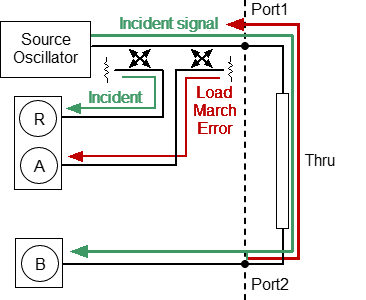
Load Match Error
Reflection Tracking Error
A reflection tracking error (Er) is caused by differences in frequency response between the test receiver and the reference receiver of the source port 1 during reflection measurement.
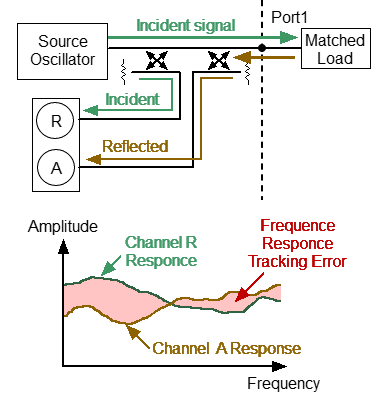
Reflection Tracking Error
Transmission Tracking Error
A transmission tracking error (Et) is caused by differences in frequency response between the test receiver of the receiver port and the reference receiver of the source port 1 during transmission measurement.
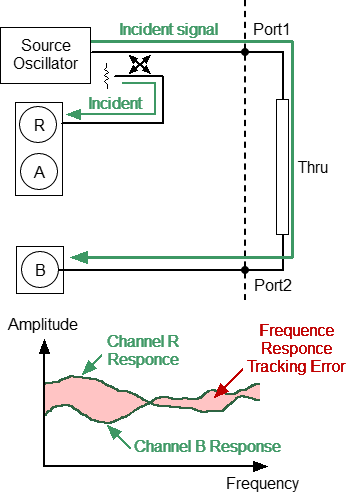
Transmission Tracking Error
Isolation Error
Isolation error (Ex) is caused by a leakage of the signal from the source port 1 to the receiver port 2 bypassing the DUT.
The Analyzer has very good isolation, which allows to ignore this error for most measurements. Isolation error measurement is an optional step in all types of calibration.
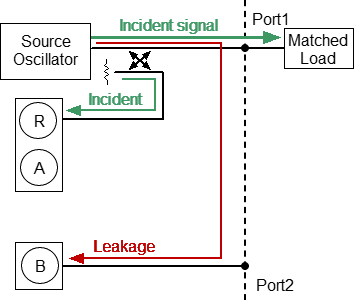
Isolation Error